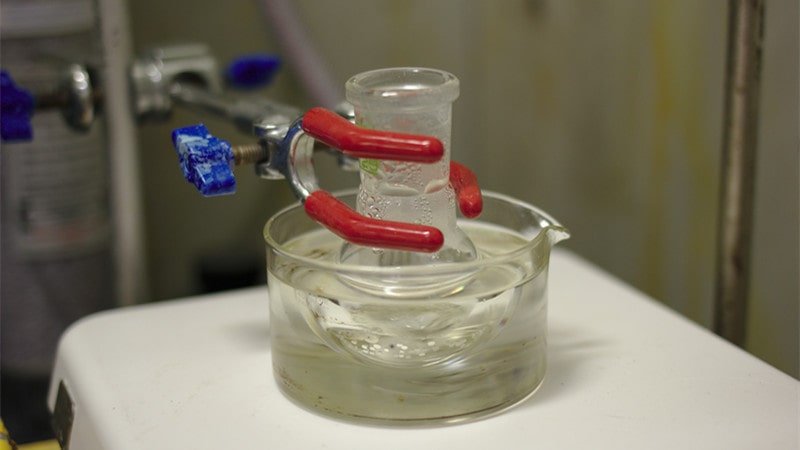As one of the most rigorous and demanding courses offered in the International Baccalaureate (IB) program, IB Chemistry Higher Level (HL) presents students with a multitude of complex concepts and challenging assessments. However, with the right approach and a comprehensive guide, students can navigate the curriculum successfully and excel in their studies.
This article aims to provide IB Chemistry HL students with a comprehensive guide to mastering the curriculum, equipping them with the knowledge, skills, and strategies necessary for success.
Understanding the IB Chemistry HL Curriculum:
Before delving into effective study strategies and exam preparation techniques, it is essential to have a clear understanding of the IB Chemistry HL curriculum. The course is designed to provide students with a deep understanding of key chemical concepts and principles, equipping them with the necessary foundation for future scientific endeavors. The curriculum covers a range of topics, including atomic structure, periodicity, stoichiometry, organic chemistry, kinetics, equilibrium, and more.
Each topic in the IB Chemistry HL curriculum has its unique significance and contributes to the overall understanding of chemistry at an advanced level. For example, studying atomic structure allows students to comprehend the behavior of elements and their interactions, while organic chemistry explores the vast world of carbon compounds, their structures, reactions, and applications.
Understanding the importance of each topic will help students appreciate the interconnectedness of various concepts, enabling them to approach the curriculum holistically.
Essential Study Strategies for IB Chemistry HL:
Mastering the IB Chemistry HL curriculum requires a strategic and disciplined approach to studying. Here are some essential study strategies to consider:
- Active Note-Taking: During lectures and while reading textbooks, actively engage with the material by taking thorough and organized notes. Summarize key points, draw diagrams, and write down questions to revisit later.
- Practice, Practice, Practice: Chemistry is a subject that requires practice to reinforce understanding. Solve a wide range of practice questions, both from textbooks and past papers. This will help solidify your knowledge and familiarize yourself with the format of exam questions.
- Create a Study Schedule: Develop a study schedule that allocates dedicated time for each topic in the curriculum. This will ensure that you cover all the necessary material and allow for effective time management.
- Utilize Resources: Take advantage of various resources available to you, such as textbooks, online educational platforms, and interactive simulations. These resources can provide additional explanations, visual aids, and practice opportunities to enhance your learning experience.
- Seek Clarification: Don’t hesitate to seek clarification from your teacher or classmates when you encounter challenging concepts or have doubts. Engaging in discussions and seeking assistance will deepen your understanding and clarify any misconceptions.
Key Concepts and Topics:
Now let’s explore some of the key concepts and topics that you will encounter in the IB Chemistry HL curriculum. Understanding these fundamental principles is crucial for building a strong foundation in chemistry:
- Atomic Structure and Periodicity: This topic explores the structure of atoms, including subatomic particles, electron configuration, and the periodic table. Understanding the periodic trends and the relationship between atomic structure and chemical properties is essential for comprehending the behavior of elements.
- Stoichiometry: Stoichiometry deals with the quantitative relationships between reactants and products in chemical reactions. It involves balancing equations, calculating quantities of substances involved, and determining the limiting reactant. Mastery of stoichiometry is crucial for performing accurate calculations in chemistry.
- Organic Chemistry: Organic chemistry focuses on the study of carbon compounds, including hydrocarbons, functional groups, and their reactions. It is a vast and important field that has applications in various industries, such as pharmaceuticals and materials science.
- Kinetics: Kinetics explores the rates of chemical reactions and the factors that influence them. It involves concepts such as reaction mechanisms, rate laws, and collision theory. Understanding kinetics allows you to predict reaction rates and optimize reaction conditions.
- Equilibrium: Equilibrium refers to the state in which the rates of the forward and reverse reactions are equal. This topic delves into the principles of chemical equilibrium, including Le Chatelier’s principle, equilibrium constants, and calculations involving equilibrium concentrations.
These are just a few examples of the key concepts and topics covered in the IB Chemistry HL curriculum. Each topic requires thorough understanding and practice to excel in examinations and develop a deeper appreciation for the subject.
Exam Preparation and Assessment:
The IB Chemistry HL exam is the culmination of your efforts and understanding of the curriculum. Effective exam preparation is essential to perform well and achieve your desired results. Here are some strategies to help you prepare:
- Review and Consolidation: Allocate sufficient time for revision. Review your class notes, textbooks, and supplementary resources to reinforce your understanding of the topics. Create concise summaries or flashcards to aid in quick revision.
- Past Papers and Mock Exams: Familiarize yourself with the structure and format of the IB Chemistry HL exam by practicing past papers. Analyze the questions, identify patterns, and understand the marking scheme. Additionally, consider taking mock exams to simulate the exam environment and assess your performance under timed conditions.
- Identify Weak Areas: Continuously assess your strengths and weaknesses. Identify areas where you struggle or require further clarification. Seek additional help, review resources, and practice targeted questions to improve in those areas.
- Time Management: Develop effective time management skills during the exam. Allocate an appropriate amount of time for each section or question, ensuring that you complete the entire paper within the given timeframe. Practice time management techniques during your mock exams to enhance your speed and accuracy.
- Understand Question Types: Become familiar with the different types of questions that may be asked in the exam, such as multiple-choice, structured questions, and extended response questions. Understand the expectations for each question type and practice strategies to approach them effectively.
In addition to these strategies, maintaining a healthy lifestyle, managing stress, and getting enough rest is vital for optimal exam performance. Taking care of your physical and mental well-being ensures that you are in the best state to tackle the challenges of the exam.
Conclusion:
Mastering the IB Chemistry HL curriculum requires a combination of effective study strategies, a deep understanding of key concepts, and thorough exam preparation.
By utilizing the comprehensive guide provided in this article and implementing the strategies discussed, you can confidently navigate the challenges of the curriculum and achieve success in your IB Chemistry HL studies. Embrace the journey, stay committed, and let your passion for chemistry fuel your quest for knowledge and excellence.




